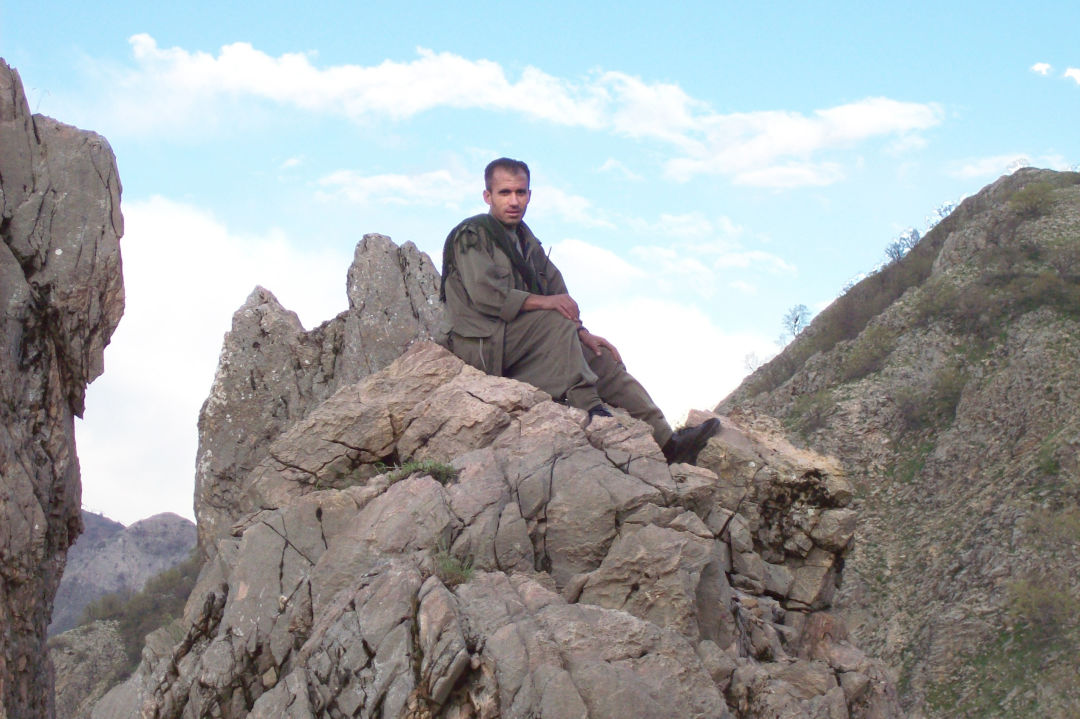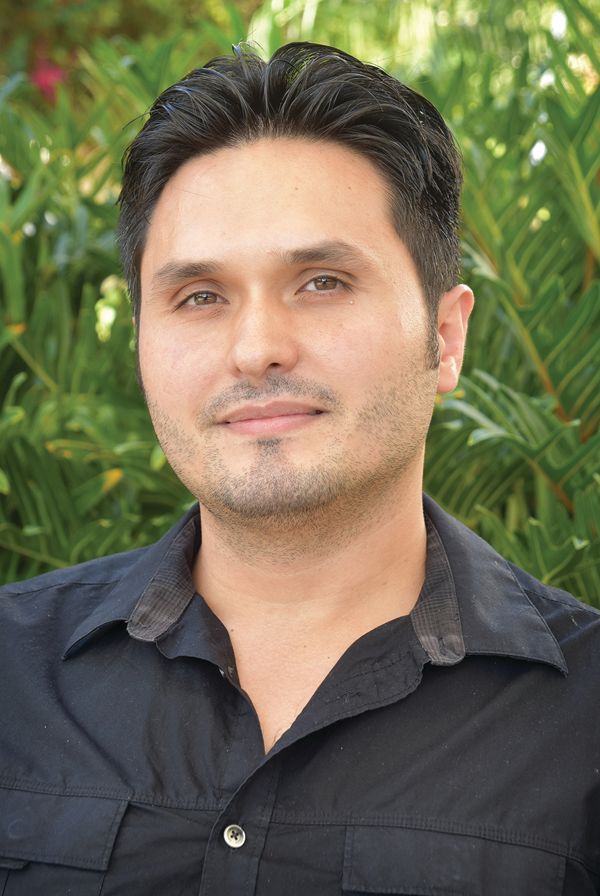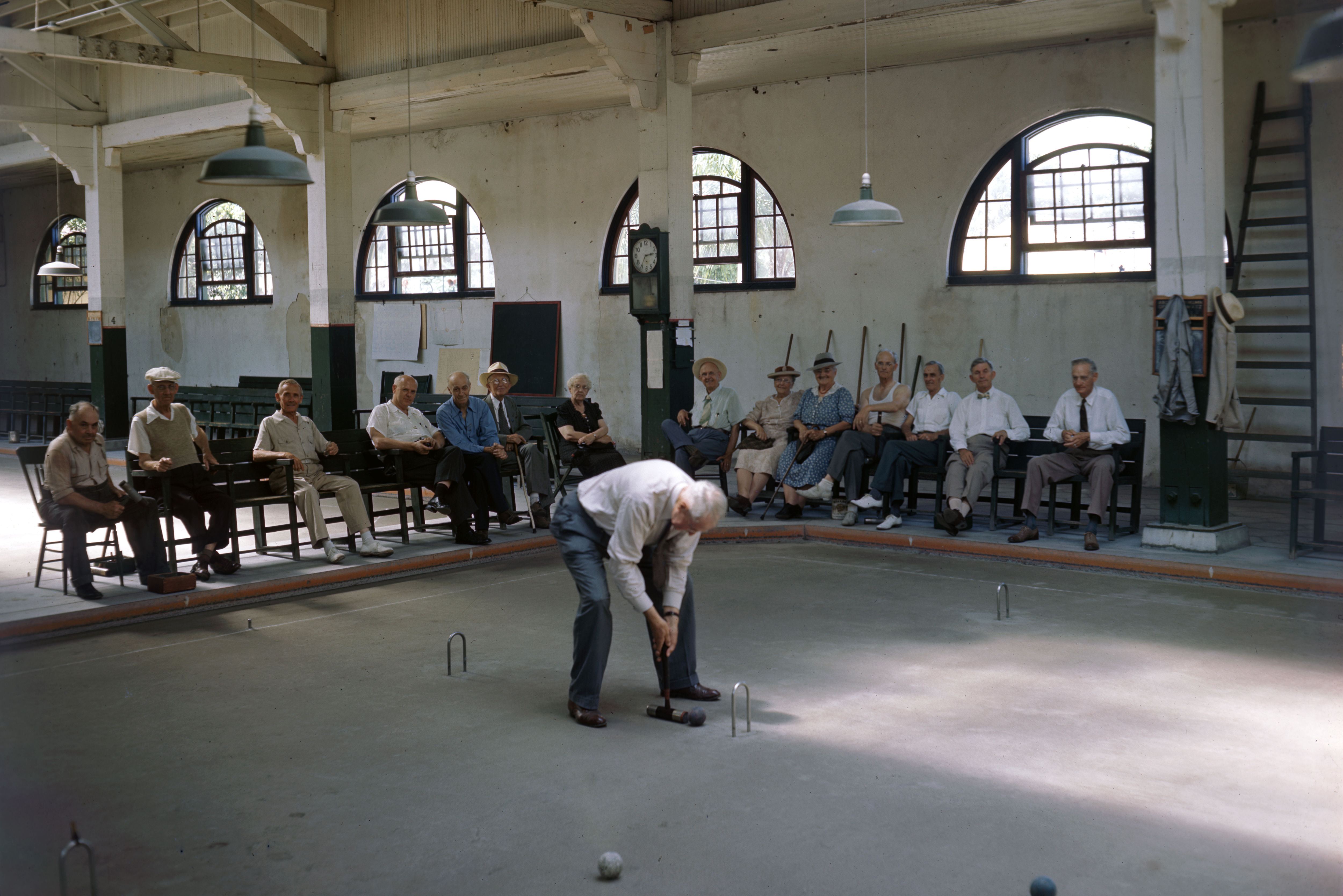A USF Sarasota-Manatee Professor's New Book Sheds Light on Terrorism

Haner interviewed PKK fighter Deniz Koçer for Haner's new book.
Image: Courtesy Photo
For five months, eight hours a day, five days a week, starting in January 2015, Murat Haner, a former Turkish police officer and now a visiting professor at USF Sarasota-Manatee, sat in a prison in Turkey. He was chronicling the life of Deniz Koçer, a high-level Kurdish terrorist. As part of his Ph.D. in criminal justice, Haner was researching what makes someone a terrorist.
Writing the life history of a terrorist is difficult for all the obvious reasons. Travel, gaining access, winning trust, committing to interviews for hours a day for months at a time and then transcribing and translating the recordings into a readable narrative make the task monumental. “I was exhausted,” Haner admits. This spring, Haner’s conversations with Koçer, who will remain in prison for the rest of his life, will be published by Routledge in his book, The Freedom Fighter: A Terrorist’s Own Story.
“Books like this don’t exist,” says Francis Cullen, a leading U.S. criminologist at the University of Cincinnati, who was Haner’s dissertation adviser. “The story is compelling, almost like a novel. It will be a major work and will have an impact.”
The book holds important policy lessons for the Turkish government, which continues to face violence from Koçer’s organization, the PKK (Kurdistan Workers’ Party, a group that has been fighting for independence) and now ISIS, but it also has implications for every nation’s response to terrorism. For Haner, a PKK fighter’s decision to resort to terrorism can be understood—and resolved—if we listen to him.

Murat Haner
Image: Courtesy Photo
Haner, now 31, should know. As the former head of intelligence collection at a counterterrorism department in a Turkish police department, he saw the PKK as a group of “baby killers and crazy people,” responsible for killing civilians and law enforcement officers. The 40-year battle between the PKK and Turkish police has cost 40,000 lives. “My goal was to kill these guys,” he says. “I had nothing in my mind regarding peace. Many of my friends lost their lives because of PKK terrorism.”
When Haner won a Fulbright scholarship to study criminology at the University of Cincinnati in 2009, the Turkish police wanted him to come back with the latest thinking and tactics to better counteract the PKK.
But his conversations with Koçer transformed him.
“Everything changed,” he says. [“My interviews] created empathy. Deniz got into terrorism because of the violence he experienced during his childhood. The key factor that led him to join the PKK was the feeling of injustice and resentment caused by the agents of the Turkish state. He had no psychological, mental or personality disorder. He had positive traits of moral conviction, commitment to others and physical courage. He wanted to protect his people. The Kurds just want their freedom, to speak their own language, to have public services in Kurdish, to live as human beings. If I was a Kurd, I would act the same.”
Military retaliation against a terrorist fighting for freedom will never work, he says. Force only creates more fighters.
“The only way to disarm [such] enemies is to talk to them, to understand what they want,” he says. (Haner notes that his research does not apply to all ISIS terrorists, many of whom have other motivations, such as religious fanaticism; listening to such people won’t change their motivation or behavior, he says.)
This conclusion, that the Kurds are not an inferior ethnic group of violence-prone individuals, is anathema to the Turkish government and the Turkish people, who, Haner says, read only what the government-controlled press allows them to read. Haner hopes his book reaches Turkish law enforcement and the public, but decades of hatred, revenge and the use of the Kurdish conflict by politicians to gain votes mean it will be a long struggle. After the book is published, Haner says he will not be able to safely return to Turkey.
For now, Haner is teaching courses in intelligence and terrorism at USF Sarasota-Manatee (his courses are among some of the most popular on campus), and he encourages his students to seek internships in Washington, D.C., with the CIA and FBI. He’s also done training and education programs for various European Union countries. “I want to be part of the solution,” he says.



